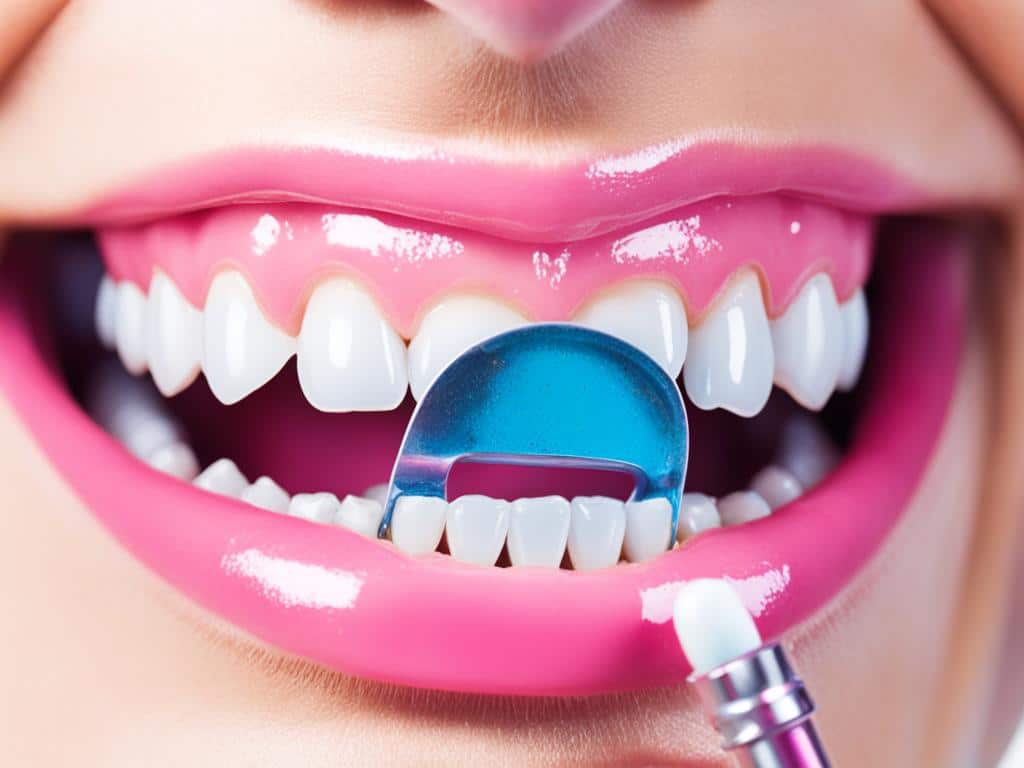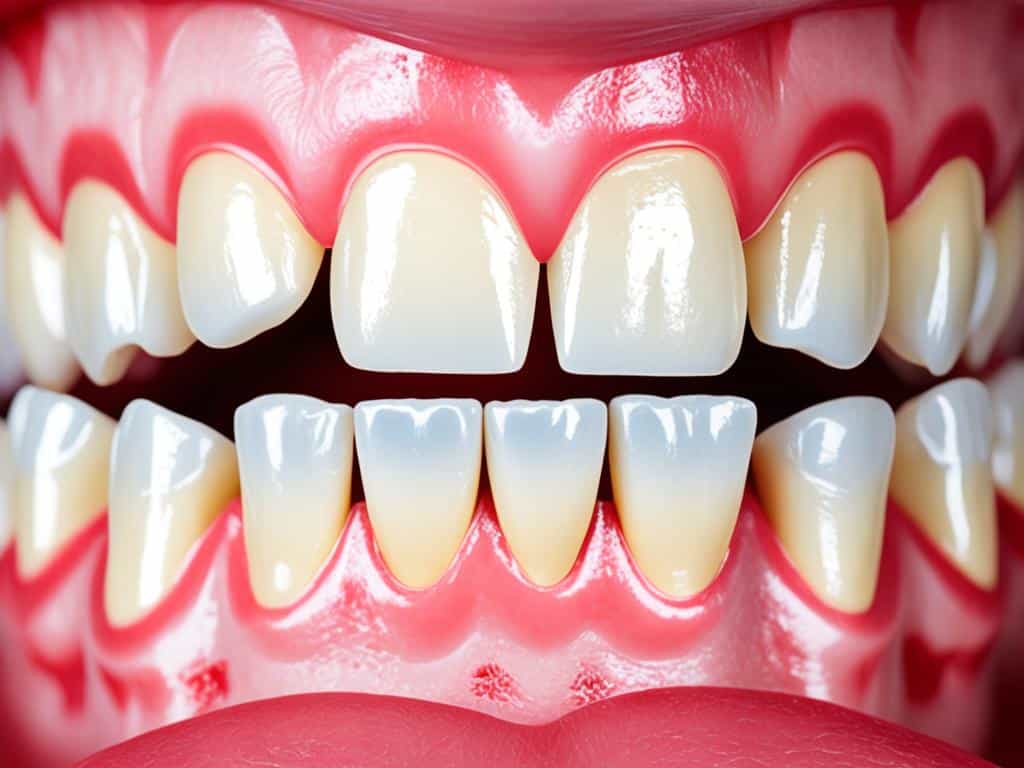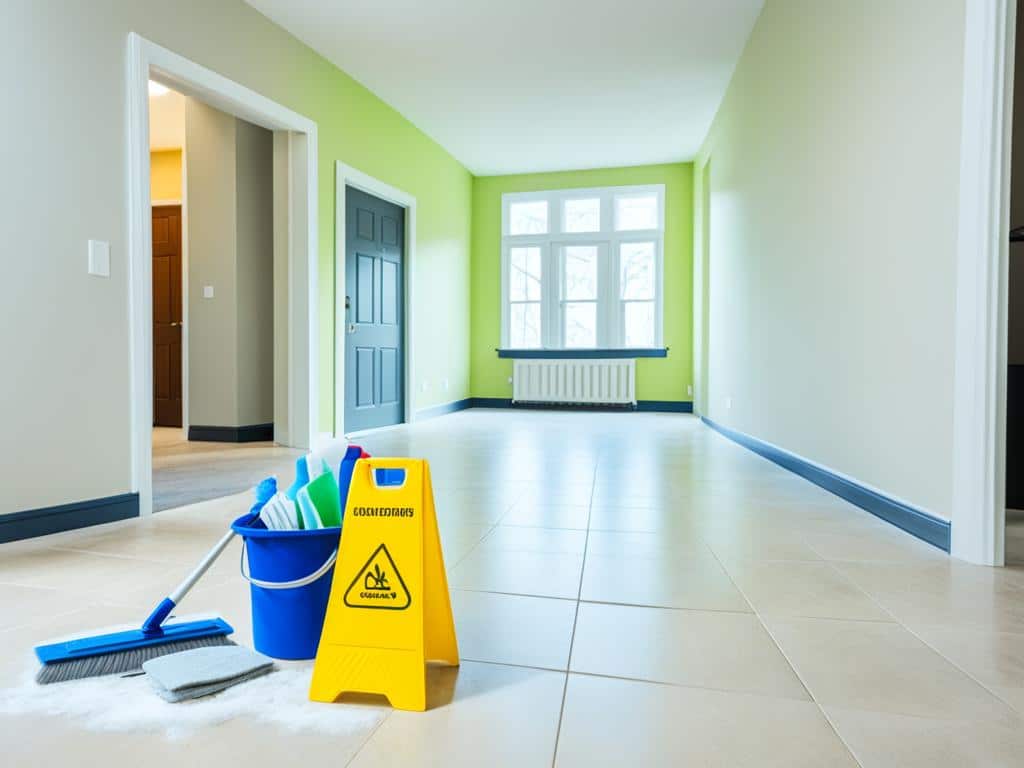
Ever wondered why your dentist might recommend a deep dental cleaning instead of a regular one? Deep cleaning teeth, also known as teeth scaling and root planing, dives deeper than regular cleanings. It meticulously removes plaque and tartar buildup below the gum line, hitting those hidden pockets where harmful bacteria thrive. This kind of periodontal cleaning can stop gum disease in its tracks and even reverse its early effects. It’s commonly suggested for those showing signs of gum disease or packing a significant amount of plaque and tartar.
Understanding Deep Cleaning Teeth
Deep cleaning teeth is more extensive than regular dental cleanings. It addresses buildup not just above the gum line but also below it, targeting areas where toothbrushes often miss.
What is Deep Cleaning?
Deep cleaning involves two key procedures: scaling and root planing. Scaling removes plaque and tartar from the tooth surfaces and below the gum line. Root planing smooths rough spots on the tooth roots, helping the gums to reattach to the teeth. This process is vital for good dental health and can prevent the advancement of gum disease.
Why It’s Important
Maintaining dental health through deep cleaning is necessary for preventing periodontal disease. Gum disease, if left untreated, can lead to severe issues like tooth loss and has been linked to heart disease and diabetes. The deep teeth cleaning benefits extend beyond just oral health, offering overall improvements in well-being and preventing more critical health problems.
Benefits of Deep Cleaning for Oral Health
Deep cleaning provides numerous advantages for maintaining your oral health. Tackling gum disease is one of the primary benefits, as this procedure eliminates harmful bacteria that cause inflammation and infection of the gums. This helps in significantly improving gum health and preventing the disease from advancing.
Gum Disease Prevention
By preventing the buildup of plaque and tartar below the gum line, deep cleaning combats the root causes of gum disease. This keeps your gums healthier and helps in avoiding painful conditions like gingivitis and periodontitis. Regular periodontal cleanings play a crucial role in sustaining good oral hygiene improvement.
Improved Breath
Deep cleaning can also be an effective bad breath treatment. The procedure removes trapped food particles and bacteria from the gum pockets, which are often responsible for bad breath. As a result, you’ll notice fresher breath and better overall oral hygiene.
Overall Oral Health
In addition to improving breath and gum health, deep cleaning contributes to overall oral health. It creates a cleaner environment for your teeth and gums, reducing the likelihood of future dental issues. Cleaner teeth mean fewer cavities and a lower risk of needing more invasive procedures later.
Differences Between Regular and Deep Cleaning
When it comes to maintaining a healthy smile, knowing the difference between regular teeth cleaning and deep cleaning is essential. Regular teeth cleaning, known as prophylaxis, aims to keep your oral hygiene in check by cleaning your teeth’s visible parts and just under the gumline. This method is effective for routine dental care.
Surface Cleaning vs. Deep Cleaning
Regular teeth cleaning is a key aspect of proactive dental care, designed to prevent plaque buildup and ensure overall oral health. It mainly involves removing surface stains and tartar visible above the gumline. On the other hand, deep cleaning, or scaling and root planing, targets the deeper areas where bacteria thrive, especially in the gum pockets and root surfaces. It’s more extensive and is a critical step in periodontal maintenance for those with gum disease symptoms.
| Aspect | Regular Teeth Cleaning | Deep Cleaning |
|---|---|---|
| Focus Area | Surface and slight below gumline | Below gumline and root surfaces |
| Purpose | Preventive care | Treatment of existing gum disease |
| Procedure Depth | Shallow | Deep |
| Frequency | Bi-annual or annual | As recommended by the dentist |
When Should You Consider Deep Cleaning?

Considering deep cleaning? Look out for the signs of gum disease. If you notice persistent bad breath or swollen, red, or bleeding gums, it might be time.
Deep pockets between your teeth and gums are also a red flag. A thorough dental check-up can identify these issues early on. Dental professionals often recommend deep cleaning during a routine check-up if these symptoms are present.
Timely periodontal therapy is critical. Catching gum disease early can prevent severe damage to your gums and teeth. In many cases, early treatment means you can avoid surgical intervention later. So, don’t delay if you notice these symptoms.
What To Expect During a Deep Cleaning Procedure
When you go for a deep cleaning procedure, it’s natural to want to know what to expect. The process usually begins with a thorough examination to assess the severity of any gum disease and to determine how much cleaning will be needed.
Initial Examination
Your dentist will first carry out an initial examination. This helps in evaluating the state of your gums and identifying areas that require special attention. This step is crucial for planning the dental scaling and root planing procedure effectively.
Scaling and Root Planing
The second stage involves the actual cleaning processes: scaling and root planing. During scaling, your dentist or dental hygienist will use special tools to remove plaque and tartar from above and below the gumline. Root planing smooths out the roots of your teeth. This helps your gums reattach and starts healing.
Post-Procedure Care
After the procedure, it’s important to follow specific aftercare tips to ensure proper healing. This might involve additional follow-up visits to monitor your gums and confirm they are reattaching properly. Adhering to these aftercare tips can make a significant difference in your overall recovery and long-term oral health.
Risks and Side Effects
Undergoing deep cleaning teeth treatment is generally safe but not without potential risks. Some common deep cleaning complications include tooth sensitivity and gum soreness. These issues often resolve within a few days but can be uncomfortable initially.
Experiencing bleeding during and after the procedure is another of the dental treatment risks. This typically diminishes as the gums begin to heal. Following your dentist’s aftercare considerations is crucial in ensuring proper healing and minimizing discomfort.
To reduce the risk of infection or other complications, adhering to aftercare considerations provided by your dentist is essential. This approach minimizes deep cleaning complications and promotes a speedy, smooth recovery.
The Cost of Deep Cleaning Teeth
When considering deep cleaning, it’s important to understand what influences the cost. Various factors impact the overall deep cleaning price and knowing these can help you plan better.
Factors That Affect Cost
- Extent of Cleaning: The more extensive the cleaning needed, the higher the cost.
- Geographical Location: Costs may vary based on where you live; urban areas can be pricier.
- Dental Office: Different offices have varying pricing models, so it’s wise to inquire beforehand.
Understand that the deep cleaning price can fluctuate based on these factors. Always check with your local providers for an accurate estimate.
Insurance and Payment Options
Dental insurance coverage is a significant factor in managing costs. Most plans cover part or all of the deep cleaning price if deemed necessary by a dentist.
It’s crucial to check with your insurance provider to understand your specific coverage. Policies differ and knowing yours can save you money.
For those without insurance, many dental offices offer payment plans or sliding scale fees. This ensures everyone can access necessary dental care without financial strain.
Being informed about your dental insurance coverage and available payment plans can make the process less daunting and more affordable.
Conclusion
Proper dental care is essential for your overall well-being. Deep cleaning teeth plays a pivotal role in protecting gum health and combating periodontal disease. This comprehensive procedure eliminates harmful plaque and tartar, providing significant deep clean benefits that regular cleaning might miss.
By addressing the deeper pockets around your gums, deep cleaning helps in preventing more serious dental issues. It promotes healthier gums and teeth, leading to a more confident smile. You’ll not only feel the improvements in your oral health but also notice fresher breath and reduced gum sensitivity.
Investing in deep cleaning is an investment in your long-term dental health. Whether it’s through professional advice or timely dental check-ups, taking proactive steps ensures that your mouth remains healthy. Remember, protecting your gum health now can save you from extensive treatments later. Keep up with your dental care routine and consult with your dentist to maintain a healthy, bright smile.



